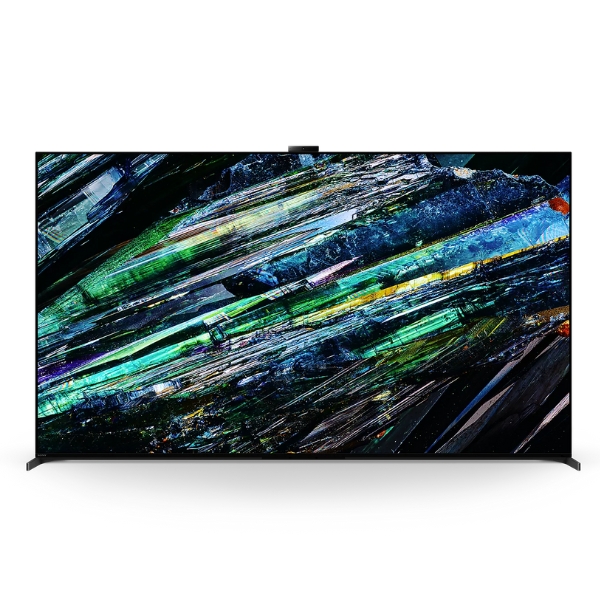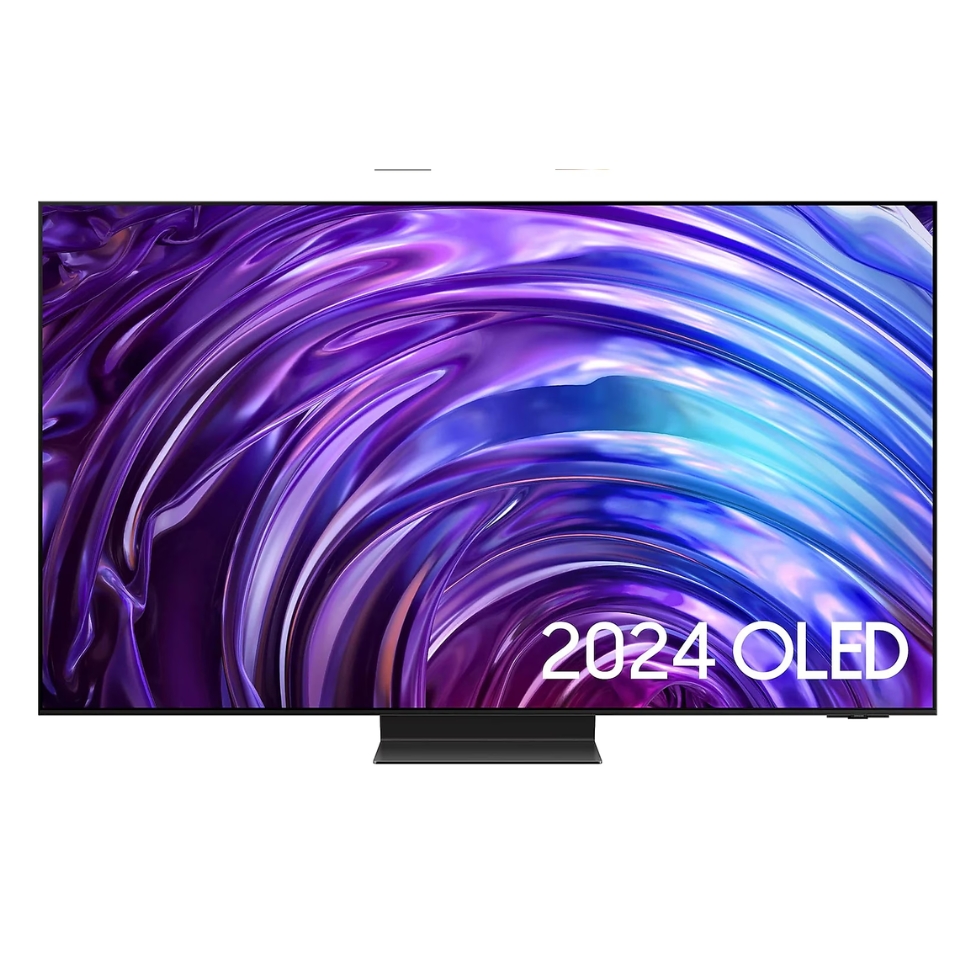Samsung vs Sony — Which of These TVs Is Best to Buy in 2025? Our TV Expert Has Come to an (Updated) Verdict
Which is the best TV for your needs? An expert TV reviewer breaks down the Samsung vs Sony debate to help you make the best decision

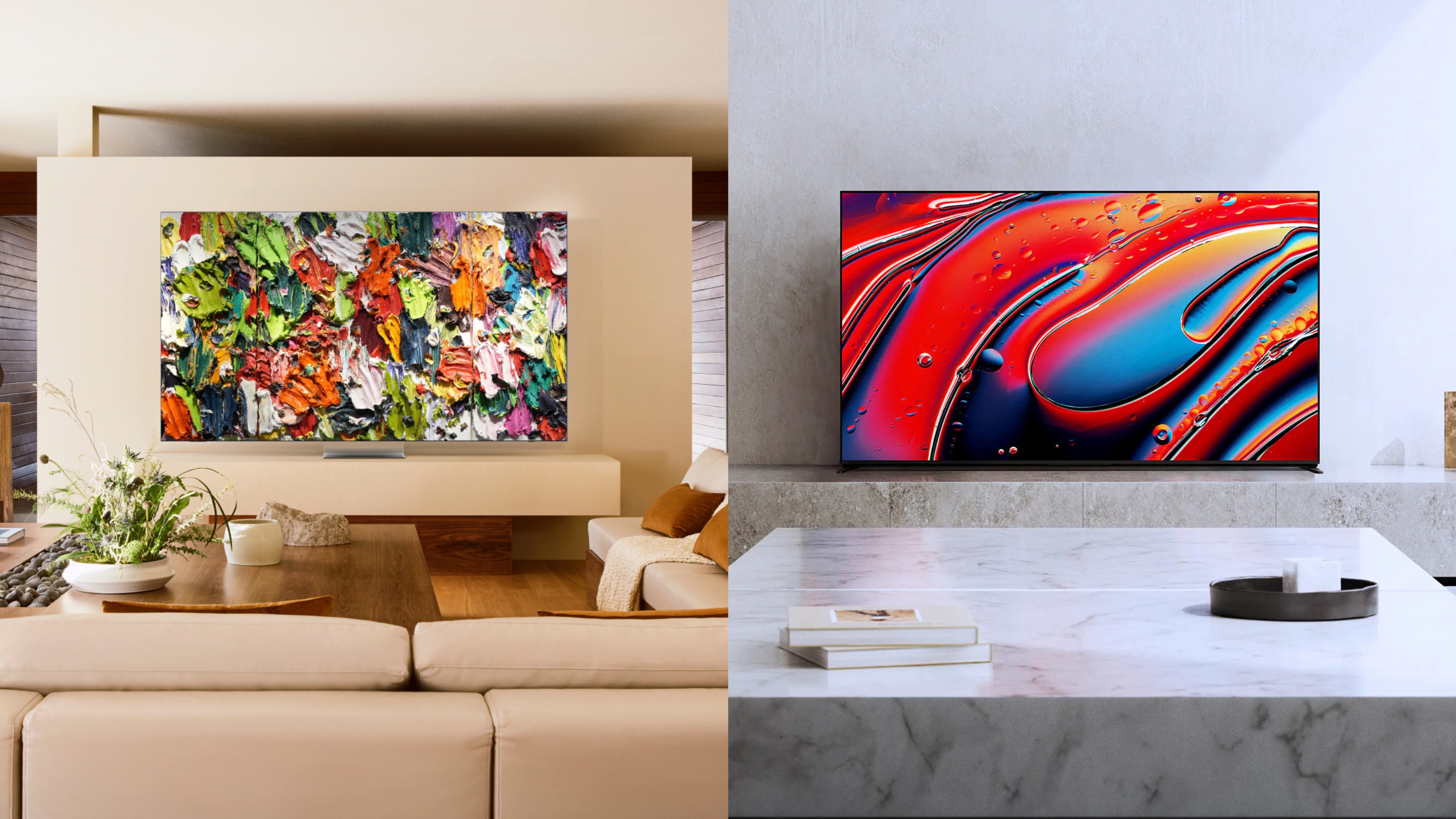
Samsung vs Sony has been a battle in the TV world going on for decades now. It started when Japan ruled the digital world, and Sony TVs were considered simply the best in class. Then, the South Korean company Samsung started to offer similar quality for more affordable pricing, sparking up a battle between the brands.
Now the two are more similarly matched, yet with more choices than ever. Which begs the question, which is the best TV for me?
Some considerations here, aside from design (which both do exceptionally well), include screen type and sound performance. These will affect your price bracket and also whether you need to set more aside for a dedicated sound system on top.
TVs from both these brands range from as compact as 32-inch screens right up to whopping 85-inch panels. And since both the best Samsung TVs and best Sony TVs are available internationally, they should be easy to buy and are often backed with great warranties.
We've completely updated this guide for 2025, ensuring the latest advice and models are covered, and we'll keep on updating it so you can always make the best decision for your home. Both brands have recently unveiled their 2025 offerings also. For Sony, it's new TVs in its popular BRAVIA range, including its new flagship BRAVIA 8 Mk II; while Samsung unveiled a raft of updated models, including the brand's new Vision AI, packing the TVs with new and improved features.
So let's break down all you need to know in the Samsung vs Sony TV debate, so you're left with the ideal television for your space.
Does Samsung or Sony Have Better Sales?

Luke is a veteran journalist and editor of over two decades where he has written about everything but specializes is technology, also writing for T3, Tom's Guide and TechRadar. He's been testing TVs for over 20 years, and has seen the fads come and go, and technology evolve over this time, so he's uniquely placed to advise on which elements are worth investing in for your home theatre set-up.
Design
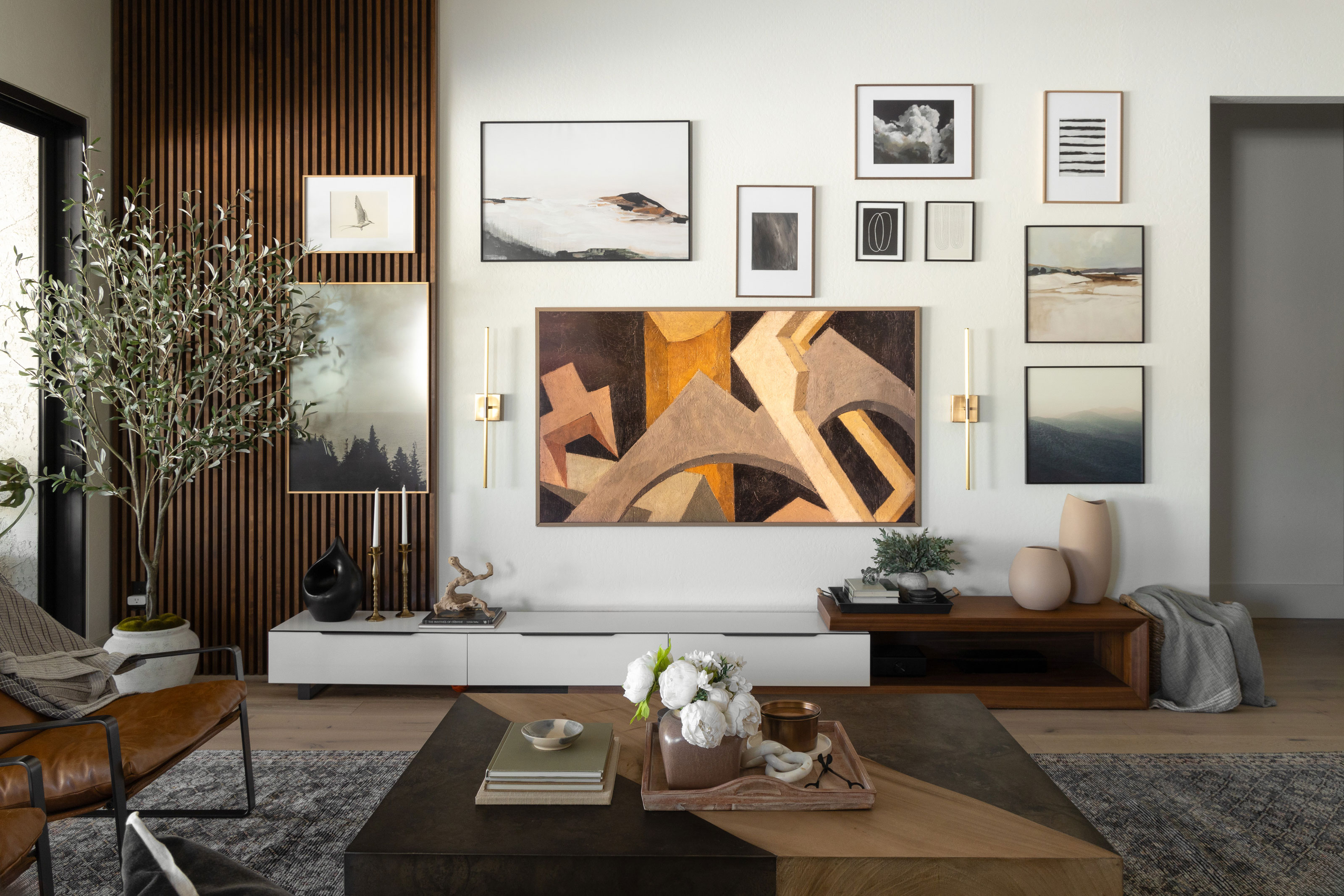
Both Sony and Samsung offer a range of stunning TV options, where even their more budget options will still look well thought out and enhance the rooms they live in.
The Livingetc newsletters are your inside source for what’s shaping interiors now - and what’s next. Discover trend forecasts, smart style ideas, and curated shopping inspiration that brings design to life. Subscribe today and stay ahead of the curve.
Sony offers some unique TV options with an overall design ethos that champions minimalism and offers a clean and subtle look. This can be ideal if you're looking for something that will fit into most rooms without standing out too much. That Acoustic Surface Audio+ technology, which turns the glass screen into a speaker, makes for a unique and functionally fantastic performer that's pretty iconic.
Samsung is more statement-focused with a wide range of TV options, including some stand-out examples. Samsung The Frame, for example, is designed to look like a frame and features a super minimal bezel so you can display art or your photos using a digital frame of choice, to suit the space. Samsung's screens, with QLED, are also generally brighter and punchier than the Sony options.
As part of Samsung's Lifestyle Collection of TVs, there is also The Serif, which comes on a four-legged stand that allows it to be moved but also to make a powerful design statement. Crafted by the Bouroullec Brothers, this features a matte display for a glare-free viewing experience. Samsung also uniquely offers The Sero, a rotating TV designed to give you a smartphone-style portrait experience for digital viewing as you need. There's also The Terrace, designed to be bright, glare-free, and weatherproof for outdoor viewing, even in sunlight.
Winner: Samsung
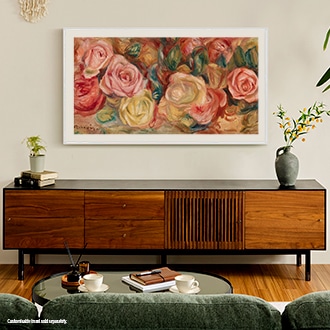
Samsung The Frame is a perfect option if you want a TV that can blend into the wall when not in general viewing use. Display art, your own photos, and anything else you can think of, using this bright and rich 4K panel. Thanks to a selection of digital frames, this can fit the space, and what's being displayed, perfectly. You can read our Samsung the Frame review online. However, before you buy, it's good to know that Samsung has just unveiled its 2025 model, on pre-order now, with Samsung's Vision AI included.
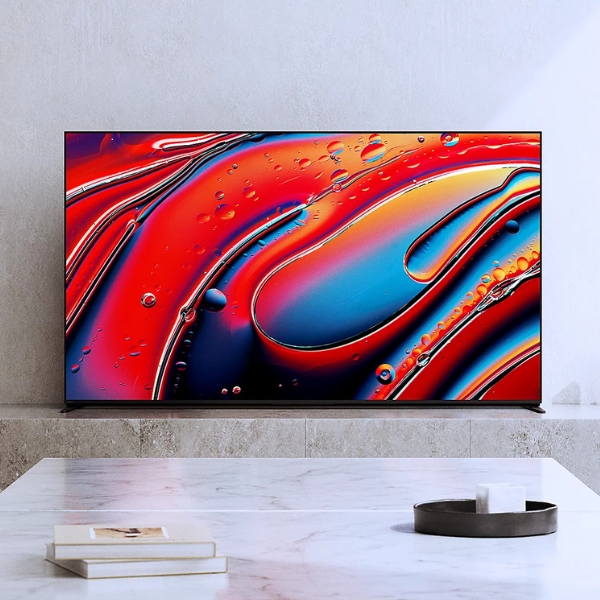
The Sony Bravia 9 is the company's flagship model, meaning it comes with all the latest visual and audio tech for the ultimate end result. This offers the most immersive and life-like viewing experience you can get from Sony and it's all wrapped in a super minimal and clean design, that leaves you focused on just what this TV can do.
Picture quality
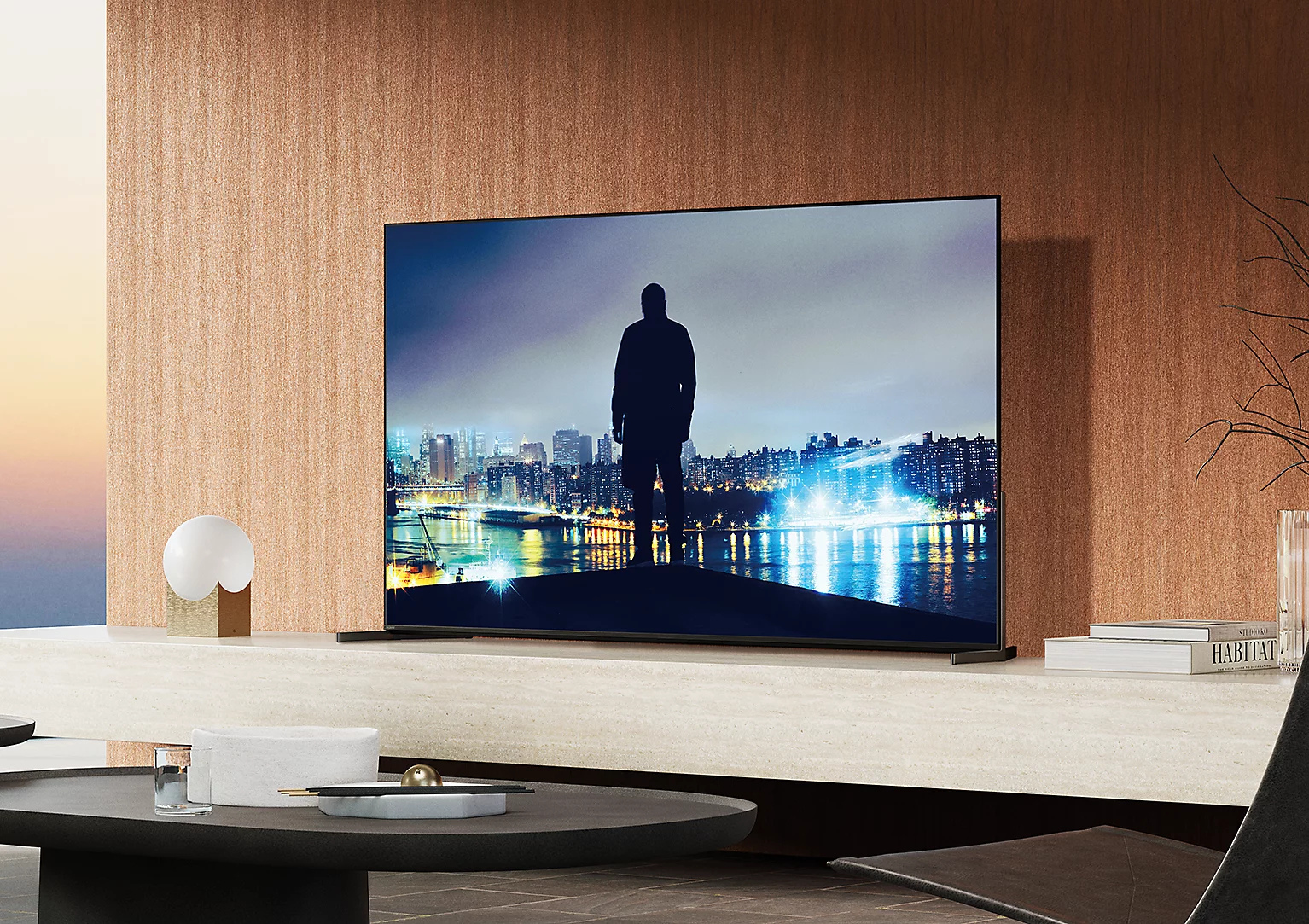
Both Sony and Samsung offer a range of panel types but the top-end in each case is OLED, and the price reflects that. In both cases, that means the widest range of colors, deep contrast range in the darker end, and buttery smooth frame rates. But there are limits even here.
Samsung offers one type of HDR codec support while Sony supports another. This is the tech behind how many colors the screen can display and ultimately how good that dynamic range is, leading to a smoother and more realistic finish.
Sony supports Dolby Vision, which offers a 12-bit color gamut for 68 billion colors. Samsung uses HDR10+, which has 10-bit, topping out at just over one billion colors.
While those numbers point out an obvious difference, there is also the subtlety of the processing to take into account. The way light is translated into digital messages, then decoded back into light to be displayed on the screen, is a big part of this. Since Sony has been working on that for decades, with its pioneering camera sensors, this is an area in which Sony excels. The end result is, usually, a superior picture on a Sony TV.
That said, when it comes to brightness, Samsung excels as it has developed new technology in its QLED panels, which are brighter than OLED. So if you're a sports fan who wants daytime viewing that's punchy, then one of these panels may suit you better.
Winner: Sony
Sound quality
While most TVs are so slim these days that the speakers are ultimately limited, Sony has found a workaround. Many of its premium TVs now feature a technology — Acoustic Surface Audio+ — that uses an actuator to turn the glass screen cover into a speaker. The end result is a more powerful and immersive audio experience.
Although it's worth keeping in mind that no TV can offer audio quality comparable to a dedicated sound system, as this offers sub-woofer bass and surround sound. That said, new TVs now use digital smarts to emulate all this well. Plus, for voice audio, both Sony and Samsung offer dedicated smarts to ensure the spoken word is as clear as possible.
Samsung offers its Object Tracking Sound (OTS) feature, which can simulate surround sound to make it appear like objects are moving in the room as they do on the TV. The reality is limited due to the number of speakers and their location, in the TV. That said, this is a useful feature that does set Samsung apart from a lot of the competition in terms of spatial audio immersion.
If you're looking to elevate your TV's sound, we tend to recommend getting a soundbar for the ultimate experience, and here are some great picks from the two brands below.
Winner: Sony
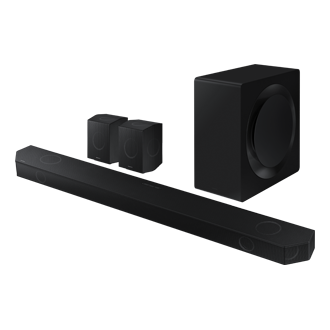
If you're looking to improve your Samsung TV's sound quality, pairing it up with one of its cinematic soundbars is an easy step to even crisper audio. Features of this set-up include Wireless Dolby Atmos, True 11.1.4ch Sound, Q-Symphony, and SpaceFit Sound Pro.
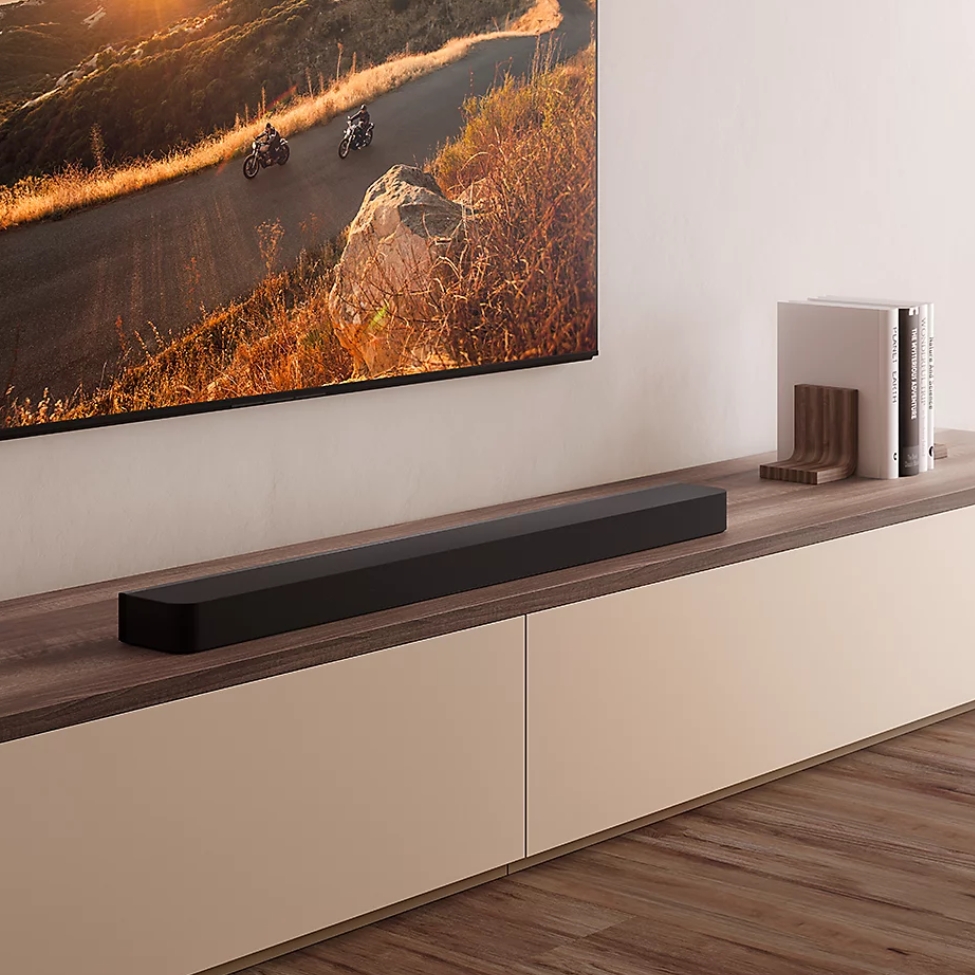
Sony's Bravia Theatre soundbar has 360 Spatial Sound Mapping, Sound Field Optimization, 2-way speaker, quad woofer, Dolby Atmos and, best of all, a super minimalist design.
Price
Sony and Samsung offer a wide range of TV prices but it's Samsung that offer more for the affordable end of the market. Even Sony's more basic TVs are pricier than plenty of the competition out there. But you do get what you pay for and Sony is clearly a premium brand.
Samsung allows you to get some really powerful premium TV features at competitive prices. Rather than paying a premium for OLED you could go for QLED and thanks to Samsung smarts it will still offer an impressive picture quality backed by great software and smart audio immersion. And, of course, Samsung design always pays attention to detail for a quality finish.
Sony will cost you more but for that price you will have a better picture and enhanced audio all wrapped up in a beautifully designed package with plenty of support from Sony. So while Sony is more expensive, it does offer a lot to justify that premium price.
Winner: Samsung
Ease of use
Both Samsung and Sony offer smart TV functionality, all controllable via the handy remote control, and plenty of smartphone app-based functionality too.
Samsung uses a version of Tizen OS, developed itself, for a bespoke finish with apps and smartphone connectivity focused around Samsung apps and devices. This in a nicely uncluttered setup, and the recently used tab makes popping back into your most accessed apps very simple. This has the Bixby voice control system, which is fine for TV controls but little else.
Sony uses Android TV OS, meaning it can be more cluttered, but as a result you have far more at your disposal. There is a huge selection of apps, in the UK this includes YouView overlaid for catch-up TV over your WiFi. Plus, this uses Google Assistant for powerful voice controls over third-party things like your speakers, doorbell, camera, and more.
Winner: Sony
Verdict
In the battle between two of the biggest names in the world of TVs both Sony and Samsung offer a lot and definitely sit at the top end of what's out there. For the widest range of options in terms of screen type, design options, and price range, Samsung stands out as offering the most.
However, for pure quality when it comes to picture and audio — as well as ease of use with comprehensive smart apps — it's Sony that wins out. Although you will pay a premium for that top-end premium quality.
So, depending on what you need, Sony or Samsung could serve you, but in this straight battle to be king, it's Sony that wears the crown, according to this

Luke is a veteran journalist and editor of over two decades where he has written about everything but specialises is technology, science, health and fitness, smart homes and health. He contributes to Real Homes, T3, Tom's Guide and TechRadar, among many other titles. As a father of two, any spare time he gets is enjoyed surfing, reading, hiking, camping and generally getting out in nature.
